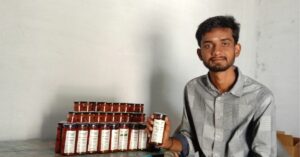Spending Just Rs 500/Month, I Grow 100+ Plants at Home. Here’s How
A resident of Machilipatnam in Andhra Pradesh, Anna Mani Ratnam grows 100 plants at home, including fruits like red guava and custard apple. From repurposing plastic containers as planters to composting and seed preparation, he shares some important gardening tips.
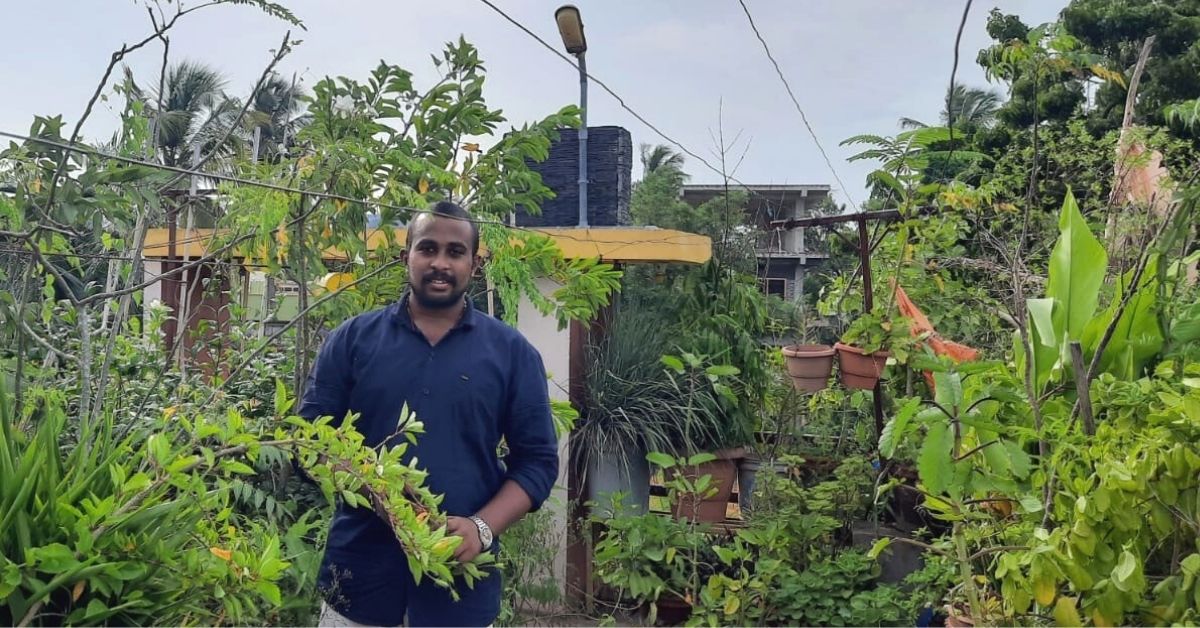
In 2017, Anna Mani Ratnam (27), a resident of Machilipatnam, moved into a newly constructed home with his family. One of the most exciting aspects of the move was that now Mani could finally pursue a dream he had nurtured since childhood — terrace gardening.
“In our previous home, we did not have much space to grow vegetables or fruit-bearing plants. However, here we have a 675 sq ft terrace on which I decided to grow a mini food forest,” Mani tells The Better India.
Three years later, his terrace houses over 100 plants including vegetables like tomato and brinjal, fruits like red guava and custard apple, and herbs like amaranthus, among others. Mani spends only Rs 500 every month to maintain his garden and shares tips and tricks on how he does this with 1,000 others on a Facebook group.
Organic and homemade
To kick things off on an auspicious note, Mani started by growing tulsi plants on his terrace. He then purchased seeds for flowering plants like jasmine, as well as for vegetables like tomato, which his family consumes regularly.
“I wanted to use the produce from the terrace garden for our daily consumption, so I needed to grow it organically. Instead of using chemical fertilisers or pesticides, I decided to use the waste from the kitchen as compost and make organic fertilisers like jeevamrut and panchakavya,” says Mani.
To learn more about how to make these organic fertilisers, he attended a two-week workshop at Guntur. Here, he learned all the basics and began implementing them at home. To keep the purchase costs low, he approached a dairy farm near his home and collected cow dung and urine.
“The owners offered it to me free of cost. Using that, I could make up to 150 litres every month. I made the fertilisers in discarded drums and kept them covered on the terrace. This was further diluted with water and added to plants every 14 days,” says Mani, adding that during the lockdown, when he could not purchase manure, he would use kitchen waste blended with water as fertilisers.
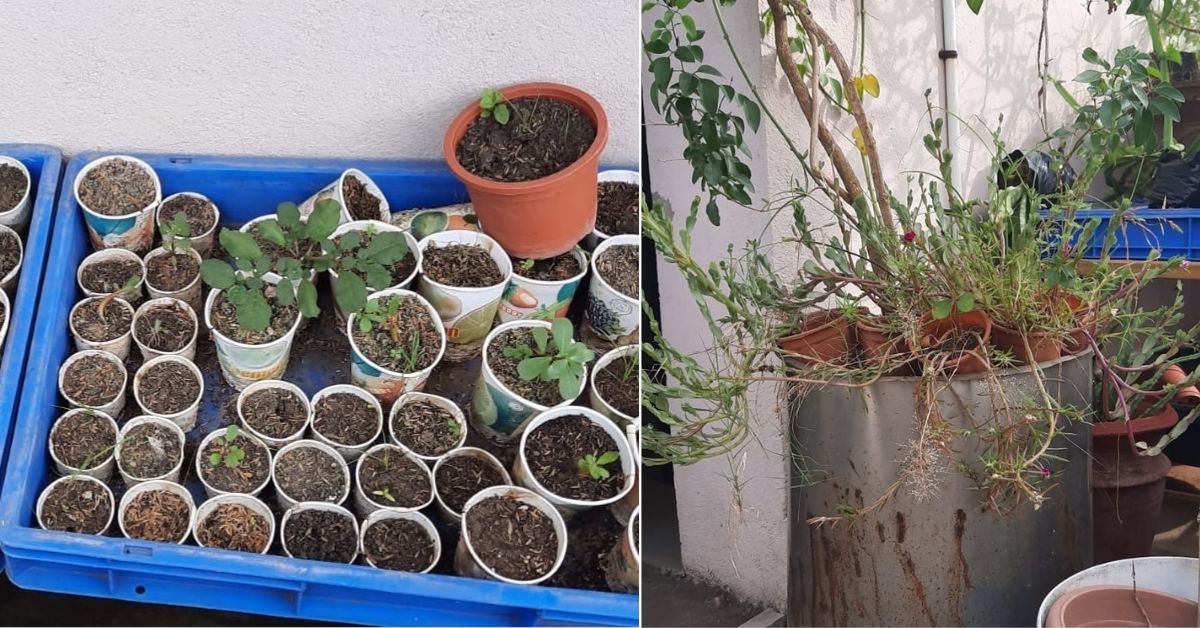
Soon, he started expanding his garden by planting fruit trees in cement pits created on the terrace, medicinal plants like bhringraj, soursop, flowering plants like adeniums, bonsais, and more. These were planted in recycled containers like plastic buckets or steel buckets that he purchased from a local kabadiwala.
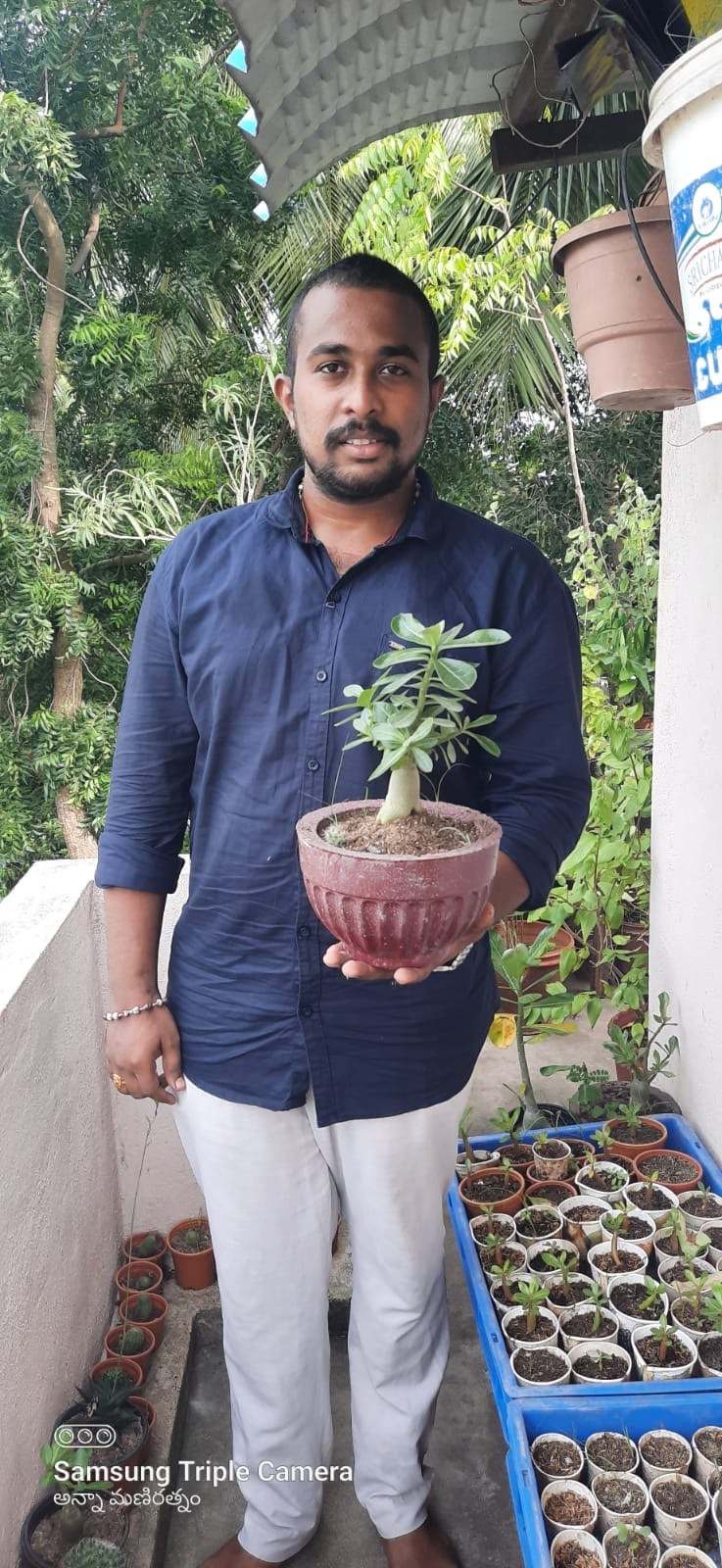
Sharing his experience
Early in 2019, Mani realised that as his plants matured, he did not have to purchase anything from shops. This ensured that costs were maintained within Rs 500 or sometimes Rs 600 per month. Apart from this, he also noticed that his home was generating less waste.
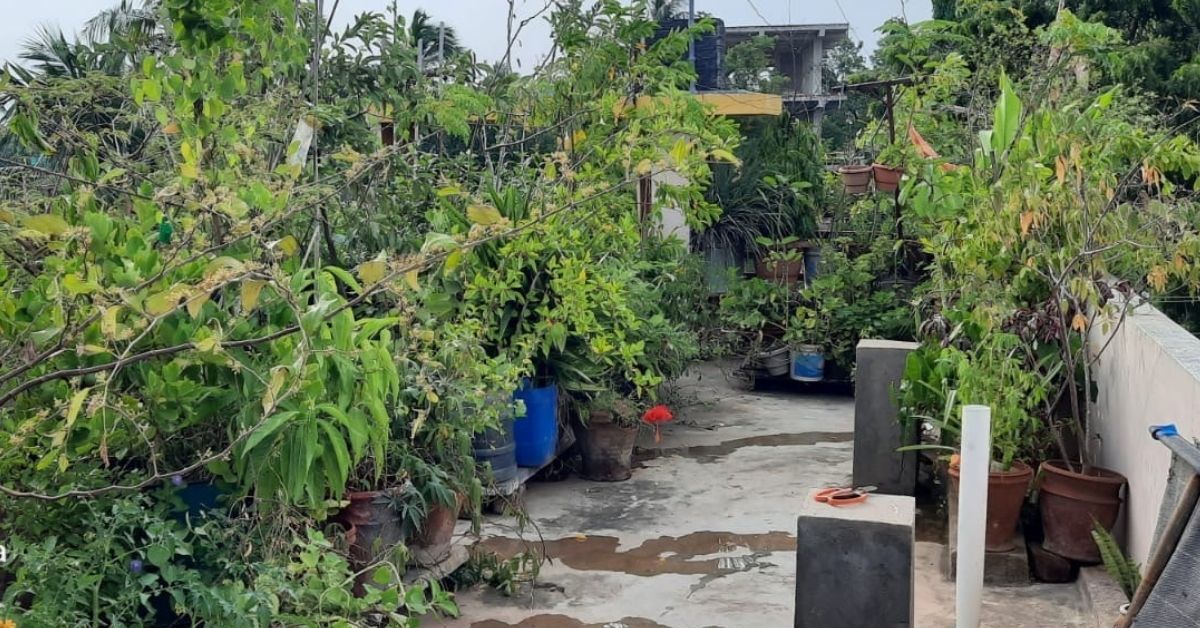
“All the wet waste was converted into compost while some of the dry waste including bottles and boxes were recycled for the garden,” says Mani, adding that he wanted to share this knowledge with others in his neighbourhood and encourage them to follow a sustainable lifestyle.
Along with Gowri Kavya, a friend he met at the workshop, he started a Facebook page named Bandar Brundavanam to share tips about composting, organic fertiliser and pesticide making, and seed harvesting.
“I shared videos and posts on gardening hacks and shared seeds and fertilisers with members living within a 3 – 5 kilometre radius. In return, they would share something unique from their garden,” says Mani.
Most of the exchanges were done free-of-cost, which Mani says encouraged over 1,000 people to join the group and become a family. While sharing some positive stories about the group’s activities, Mani says during the second wave of the pandemic, the group’s bond became stronger.
“When an elderly member of the group passed away, her daughter reached out to the group and requested if her mother’s plants would be adopted by others, as her last wish. More than 10 members stepped forward and took in a variety of plants and continue growing them as their own today,” says Mani.
In the future, Mani hopes that the group inspires more people to take up organic farming in their homes. He says that it would help an individual follow a healthy lifestyle and reduce the waste circulated into the environment.
You can join Mani’s FB group Bandar Brundavanam here.
If you found our stories insightful, informative, or even just enjoyable, we invite you to consider making a voluntary payment to support the work we do at The Better India. Your contribution helps us continue producing quality content that educates, inspires, and drives positive change.
Choose one of the payment options below for your contribution-
By paying for the stories you value, you directly contribute to sustaining our efforts focused on making a difference in the world. Together, let's ensure that impactful stories continue to be told and shared, enriching lives and communities alike.
Thank you for your support. Here are some frequently asked questions you might find helpful to know why you are contributing?


This story made me
-
97
-
121
-
89
-
167




